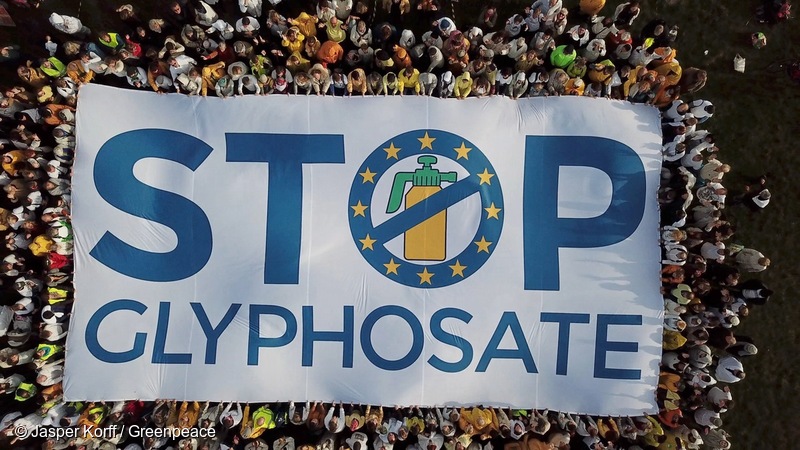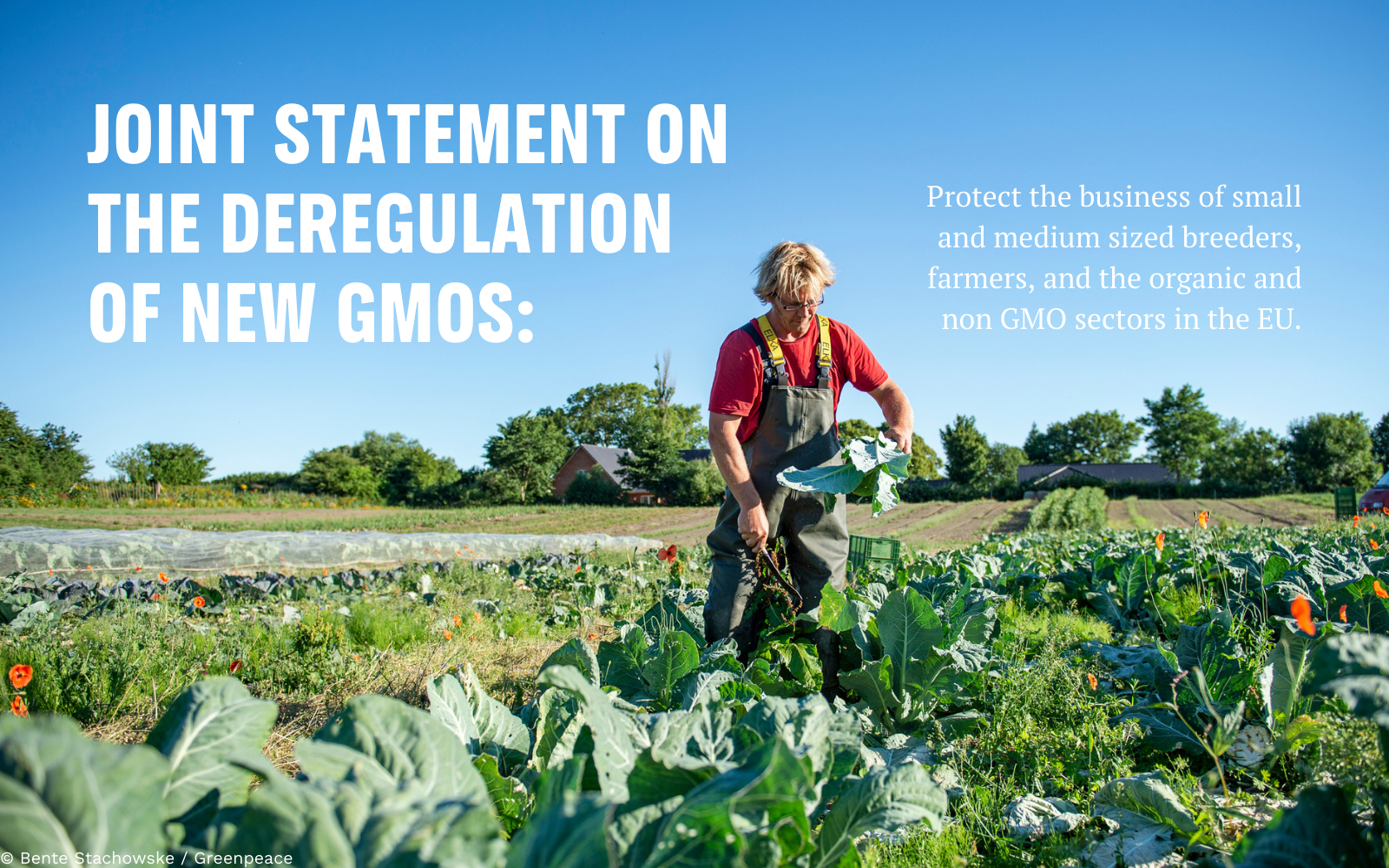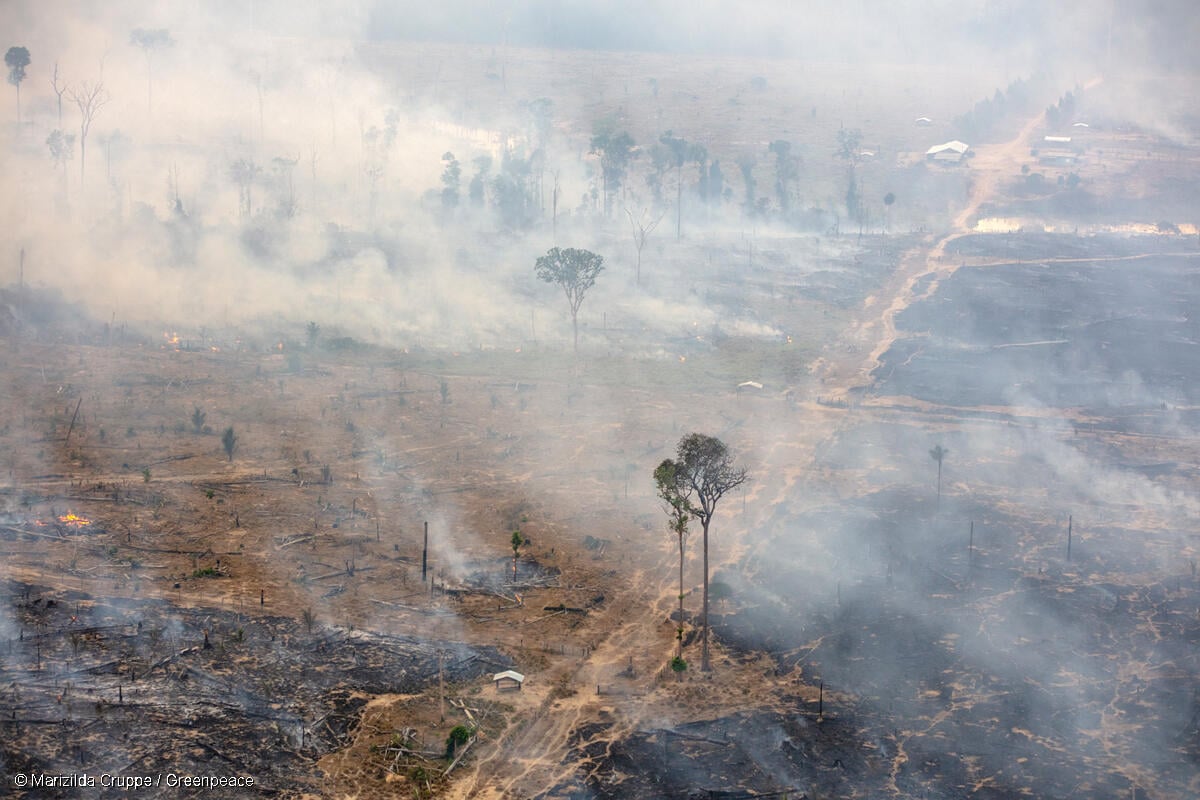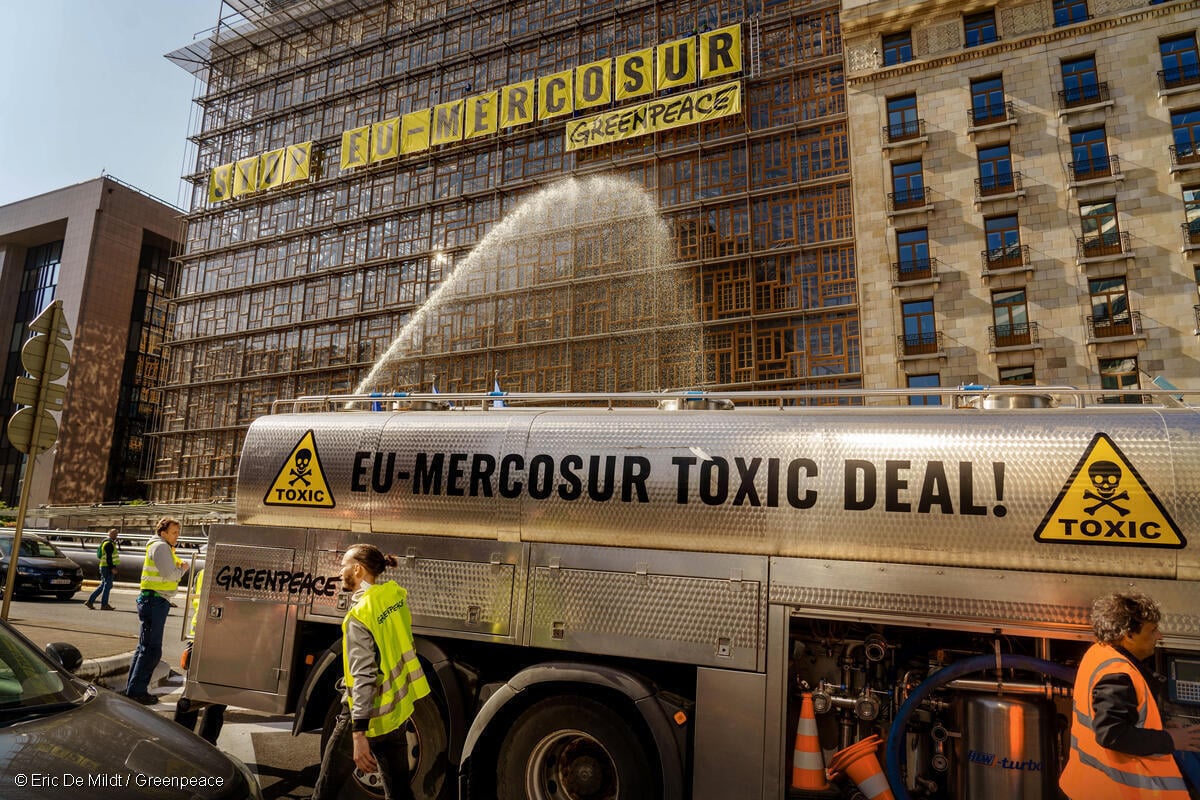Brussels, 14 November 2023 – Greenpeace is calling on European governments to vote against the licence renewal for glyphosate, an ingredient in weed killers, considering the latest scientific evidence of its toxic effects and the flawed EU pesticide approval system.
On 16 November, representatives of national governments will vote on an European Commission proposal to renew glyphosate’s licence, after they failed to take a decision during a previous vote last month, following opposition and abstention by several European countries. The European Commission wants to finalise the process before 15 December 2023, when the current licence expires.

Greenpeace EU GMO and glyphosate campaigner Eva Corral said: “There is enough scientific evidence of the toxic effects of glyphosate on people’s health and on the environment that cannot be ignored. European governments have a duty to protect their citizens’ health and the nature we all rely on. Policy-makers have the chance to end glyphosate’s toxic legacy in Europe, they must take it and vote against renewing the licence.”
The German chemical company Bayer, which produces glyphosate and holds the licence, has recently lost three legal cases against cancer patients in the United States who claimed their illness was due to exposure to glyphosate-based Roundup weed killer.
Early in November, the European Network of Scientists for Social and Environmental Responsibility (ENSSER) expressed serious reservations about the European Commission’s proposal to renew glyphosate’s licence. ENSSER cited the scientific evidence on the negative effects of glyphosate and glyphosate-based products on human health, and highlighted that the EU pesticide approval system fails to identify the full impact of this substance on people and the environment. According to ENSSER, by proposing to renew the use of glyphosate, the Commission has failed to apply the precautionary principle, given that the current proposal neglects to take into account all the reported adverse effects of the toxic substance.
An article on glyphosate and Parkinson’s disease, published in the Lancet on 7 November, suggests, on the basis of animal studies, that there may be a connection between the rapid rise in cases of Parkinson’s disease and exposure to glyphosate. The article also highlights the inadequacy of current pesticide regulations for protecting brain health.
In October, in France, an expert group for the compensation of victims of pesticides recognised a 16-year-old as a “victim of glyphosate”, for the first time officially establishing a connection between prenatal exposure to the weed killer ingredient and malformations.
The Commission’s proposal to extend glyphosate’s licence in Europe follows European Food Safety Authority (EFSA) conclusions on glyphosate, published in July. EFSA claims that its assessment is the most comprehensive pesticide assessment that the agency and EU countries have ever conducted. Yet, according to scientists and civil society, EFSA and a previous assessment by the European Chemicals Agency (ECHA) have not taken into account studies that show negative health impacts, including associations between glyphosate and cancer. Scientists have also complained that studies on genotoxicity submitted by the chemical industry are not reliable. According to ENSSER, the impact of glyphosate on biodiversity has been “grossly underestimated” in the assessment.
Alternatives to glyphosate exist, even though some policy makers have cited a lack of alternatives as a reason to keep glyphosate on the market. During the last vote, Austria, Croatia and Luxembourg voted against the renewal, while France, Germany, Belgium, Bulgaria, Malta and the Netherlands abstained, and the necessary majority to renew the licence was not reached.
If the EU countries’ representatives voting on glyphosate’s use in the Appeal Committee don’t deliver an opinion on 16 November, the decision on the licence extension will be adopted by the Commission without additional consultations.
ENDS
Contact:
Eva Corral, Greenpeace EU GMO and glyphosate campaigner: +32 479 60 12 89, [email protected]
Greenpeace EU press desk: [email protected]
For breaking news and comment on EU affairs: www.twitter.com/GreenpeaceEU
Greenpeace is an independent global campaigning network that acts to change attitudes and behaviour, to protect and conserve the environment and to promote peace. We do not accept donations from governments, the EU, businesses or political parties. Greenpeace has over three million supporters, and 26 independent national and regional organisations with offices in more than 55 countries.
EU Transparency Register: 9832909575-41



